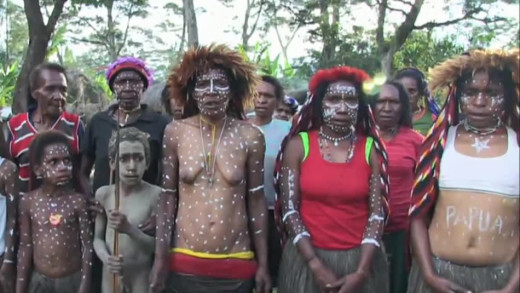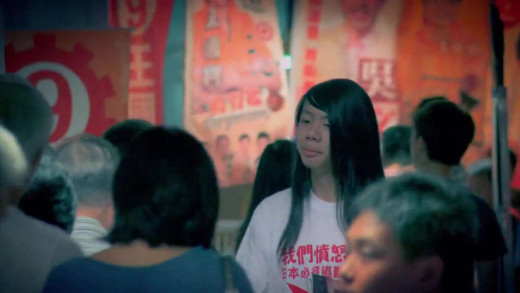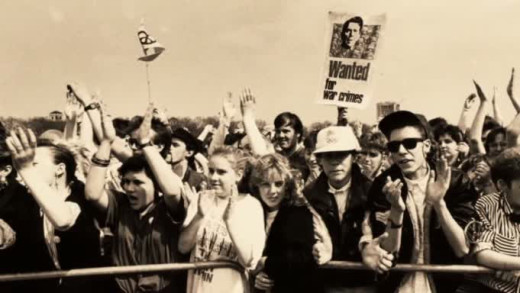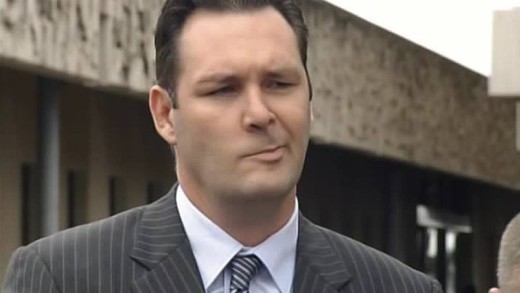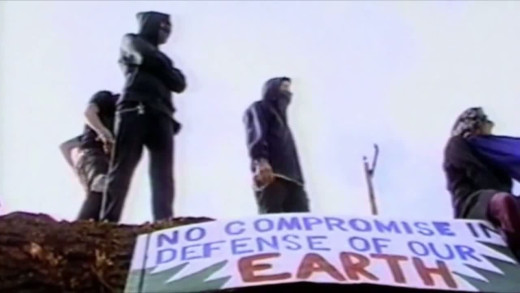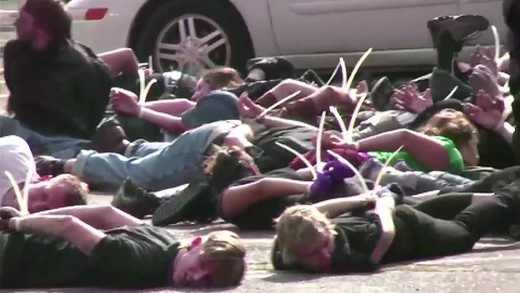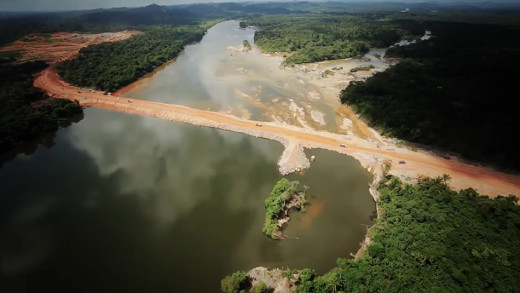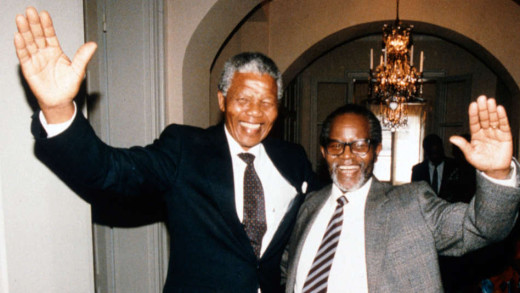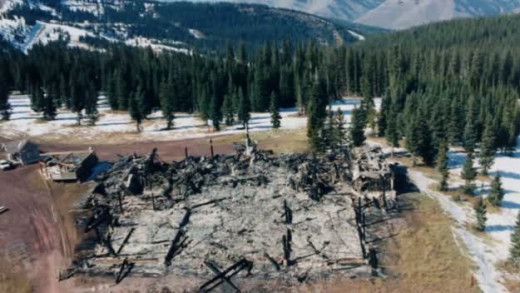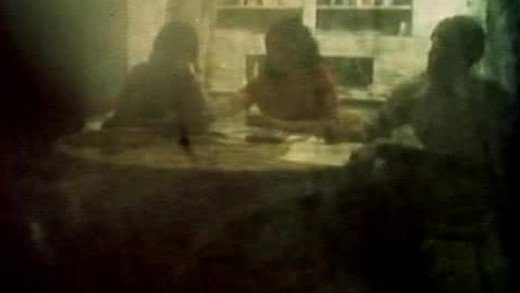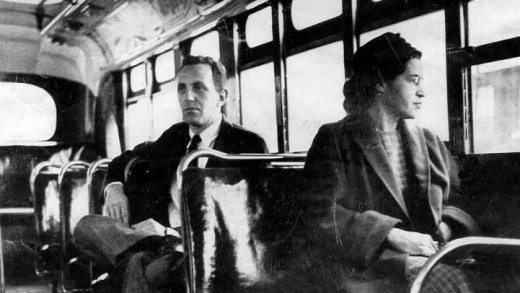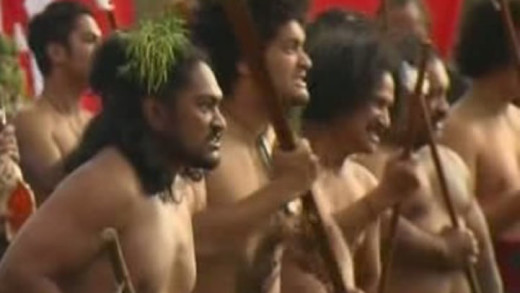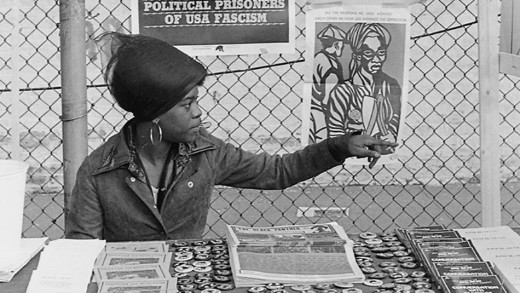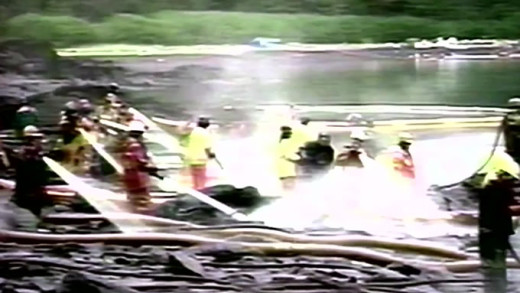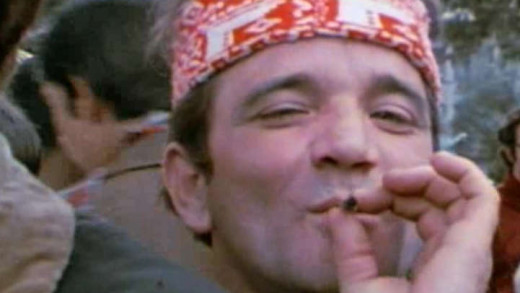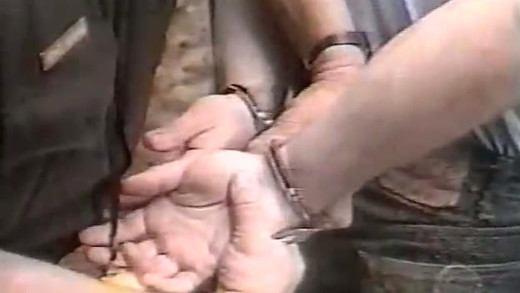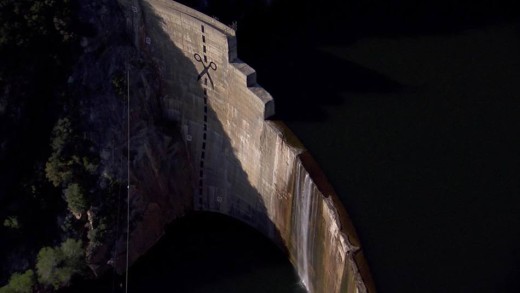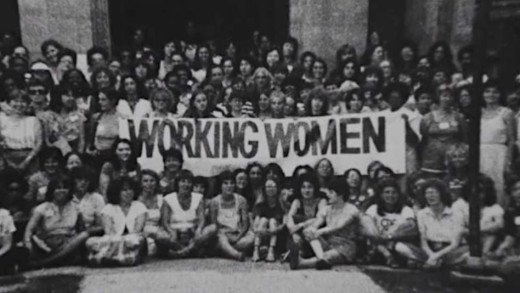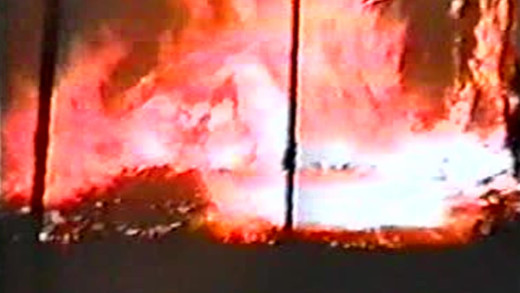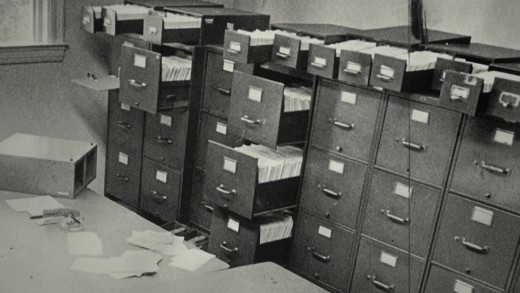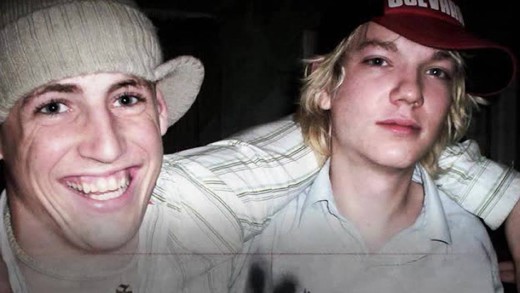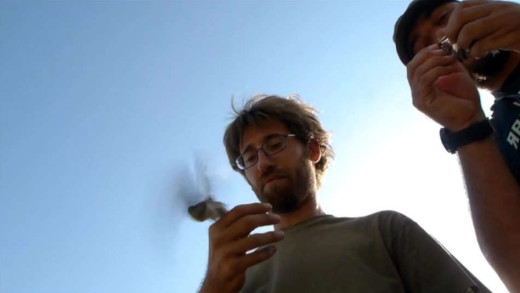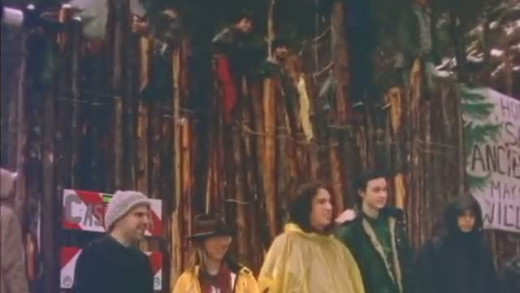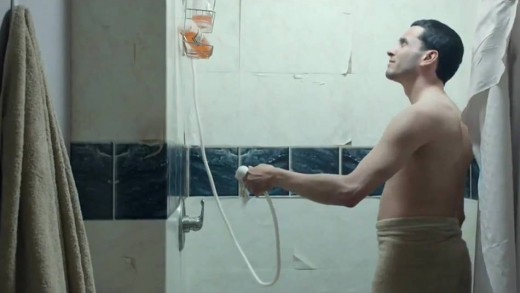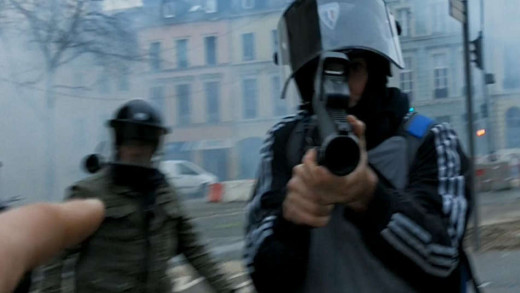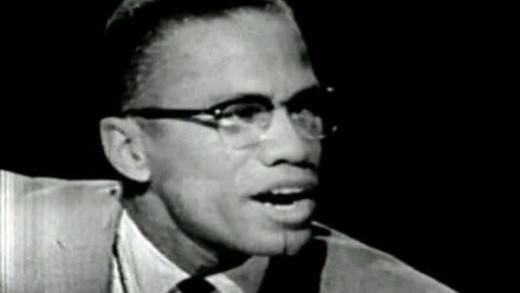Goodbye Indonesia investigates one of the world's most forgotten conflicts--the West Papuan struggle for independence. When the Dutch decolonised their empire after the Second World War, they handed it all to the emergent country of Indonesia--all except the territory of West Papua, which forms one half of New Guinea, the second largest island on Earth. This remarkable landmass split neatly by colonial powers into West Papua and Papua New Guinea, is like few other places in the world...
Filmed over 18 months, Lessons in Dissent is a kaleidoscopic portrait of a new generation of Hong Kong democracy activists. 18-year-old Joshua Wong dedicates himself to stopping the introduction of National Education. His campaign begins to snowball when an interview goes viral on social media. With the new school year fast approaching, a showdown with the government seems inevitable. So with a microphone in hand, and still in his school uniform, he takes to the streets to protest, along with 120,000 people in support. Meanwhile, former classmate Ma Jai fights against political oppression on the streets and in the courts. Having dropped out of school and dedicated himself to the movement, he endures the persecution suffered by those not lucky enough to be protected by the glare of the media. Lessons in Dissent catapults the viewer on to the streets of Hong Kong, confronting the viewer with the country's rising energy of dissent.
By charting the history of the anti-war movement against the political backdrop of the atomic age, Beating The Bomb examines the current state of 'nuclear deterrence' brought about by the nuclear age stemming from the end of World War II, when the United States nuked Hiroshima and Nagasaki. Specifically, the anti-nuclear movement and the founding of the Campaign for Nuclear Disarmament in 1958 amongst others, fight for and end to the British Nuclear Weapons program, which from its inception, was closely tied to The Manhattan Project and still is to this day...
The Tall Man
The Tall Man is the story of an Aboriginal man, Cameron Doomadgee (tribal name: Mulrunji) who in 2004 was arrested by Senior Sergeant Chris Hurley (the so-called 'Tall Man') in Palm Island, a tropical paradise in Australia's Far North. 45 minutes after the arrest, Mulrunji was found dead in the Palm Island police station. His injuries were like those of someone who'd been in a fatal car crash. The police claimed he had "tripped on a step," but the community knew this was bullshit. The Palm Islanders protested for truth and burnt down the police station. The subsequent trial of Hurley—who had been decorated for his work in Aboriginal communities—made headlines day after day, shadowed by Queensland police threatening to strike. The police officer was acquitted for the death by the Attorney General. The Tall Man follows these stories by delving into the courtroom, the notorious Queensland police force, and speaking with the Indigenous community of Palm Island, where this tale is sadly still indicative of many of the continuing atrocities of Aboriginal deaths in police custody.
Can't Get You Out of My Head: An Emotional History of the Modern World is a six-part series that explores how modern society has arrived to the strange place it is today. The series traverses themes of love, power, money, corruption, the ghosts of empire, the history of China, opium and opioids, the strange roots of modern conspiracy theories, and the history of Artificial Intelligence and surveillance. The series deals with the rise of individualism and populism throughout history, and the failures of a wide range of resistance movements throughout time and various countries, pointing to how revolution has been subsumed in various ways by spectacle and culture, because of the way power has been forgotten or given away.
People from industrial civilisation are fast to defend it, saying that they depend on this way of life for survival. It's an addiction. But what if civilisation is the very thing that is killing us and everyone else around? How could we survive then? The Fuck-It Point is about this pervasive disabling mindset of civilisation, its true cost, why and how we need to stop it from killing the planet, and why most people from civilisation don't want to do this. Will you do what is necessary to stop this culture from killing the planet?
The legacy of the Bush administration and the so-called "War on Terror" includes a new logic that stretches well beyond the realm of overzealous security agencies, airport security and international relations, and into suppressing public protest; expanded surveillance aimed at entire populations, but especially activists; and mobilising fear for social control. Special police techniques have even been developed and applied in order to specifically suppress dissent and manage protests, especially in the wake of the rising anti-globalisation movements towards the turn of the millennium. Preempting Dissent provides a quick overview of how some of this logic developed, as well as a glimpse of how political protest in the West has been shaped and controlled in the "post-9/11" years, up to and including the so-called Occupy movement. By provoking a reflection of the implications of the logic of the "War on Terror" and how its applied to stifle political protest, Preempting Dissent aims to lay some of the groundwork to develop more effective resistance tactics.
Damocracy
Damocracy travels from the deepest corners of the vast Amazon rainforest in Brazil to the mountains and plains of fertile upper Mesopotamia in south east Turkey, to expose the myth that large-scale dams, as clean energy, are a solution to climate change. The film records the priceless cultural and natural heritage the world will lose in the Amazon and Mesopotamia if two planned large-scale dams are built--the Belo Monte dam in Brazil, and the Ilisu dam in Turkey. Damocracy documents the story of resistance by the thousands of people who will be displaced if the two projects go ahead, and issues a call to the world to support this fight to save the last rivers from industrial civilisation...
Have You Heard From Johannesburg? is series chronicling a history of the global anti-apartheid movement that opposed South Africa's entrenched apartheid regime. The movement encompassed many methods, including mass action, underground organising, armed struggle, and international mobilisation. This series focuses on the last category: the movement to mobilise worldwide citizen action to isolate the apartheid regime. Inspired by the courage and suffering of South Africa's people as they fought back against the violence and oppression of racism, foreign solidarity groups, in cooperation with exiled South Africans, took up the anti-apartheid cause. Working against the odds, in a climate of apathy or even support for the governments of Verwoerd, Vorster and Botha, campaigners challenged their governments and powerful corporations in the West to face up to the immorality of their collaboration with apartheid, revealing that the battle was more than just political. It was economic, cultural, moral, and spiritual. The combined stories have a scope that is epic in both space and time, spanning most of the globe over half a century. Beginning with the very first session of the United Nations, and ending in 1990--when, after 27 years in prison, Nelson Mandela, the best known leader of the African National Congress, toured the world, a free man.
For years, the Earth Liberation Front--autonomous individuals operating in separate anonymous cells without any central leadership--carried out spectacular direct-actions against businesses that destroy the environment. Some of the targets were logging corporations, SUV dealerships, ranger stations, a slaughterhouse and a multi-million dollar ski-lodge at Vail, Colorado that was expanding into national forest. As authorities were not able to crack the case and disbanded many years later, the FBI got lucky when they were led to a former activist who agreed to co-operate with them and become an informant. If A Tree Falls provokes hard questions about environmentalism, activism, and the way 'terrorism' is defined by following the story of the activists who were turned over to the FBI, and their fate...
Underground is a film about the Weather Underground Organisation—a group founded as a militant faction of the civil rights and anti-war movement of the 1960s and 1970s. The film combines interviews with members of the group after they went underground who explain how they became radicalised amongst the political happenings in the United States at the time, as well as the revolutionary struggles in Cuba, Russia and China, and the history of struggles over Native American rights and labour issues. Also detailed is the group's analysis of American society, addressing those who have inspired them, and further explaining the reasons behind their militancy, while also introducing the issue of tactics. We see the use of property destruction as a way to bring about change and destabilise the current political order. Underground takes an intimate look at the inner workings of the Weather Underground and their strong internal collective identity, providing a record of how a bunch of middle-class Americans became self-styled militant revolutionaries, raising questions not only about the merits of their struggle, but also about past and future radical actions.
Eyes on the Prize tells the story of the civil rights era from the point of view of the women and men whose extraordinary actions launched a movement that changed the fabric of American society, and embodied a struggle whose reverberations continue to be felt today. It is the story of the people--young and old, male and female, northern and southern--who, compelled by a meeting of conscience and circumstance, worked hard to eradicate a world where whites and blacks could not go to the same school, ride the same bus, vote in the same election, or participate equally in society. It was a world in which peaceful demonstrators were met with resistance and brutality--a reality that is now nearly incomprehensible to many young Americans. Through contemporary interviews and historical footage, Eyes on the Prize traces the civil rights movement from the Montgomery bus boycott to the Voting Rights Act; from early acts of individual courage through the flowering of a mass movement and its eventual split into factions.
Tūhoe -- History Of Resistance documents the fight for justice of the Tūhoe people of Te Urewera, Aotearoa (New Zealand). Set on contested land in the Urewera ranges of the middle North Island, the film presents the ways of Māori--the indigenous peoples of the land.
1966, United States. A new revolutionary culture was emerging and it sought to overthrow the corrupt systems of power waging the invasion of Vietnam, amongst the struggle for equality and civil rights at home. Beginning with armed citizens' patrols to keep police accountable and challenge police brutality in Oakland California, The Black Panther Party put itself at the vanguard for social change, expanding in 1969 to community social programs, including free breakfast for school kids and community health clinics. This lead the FBI to call the movement "the greatest threat to the internal security of the country," and start an extensive government program called COINTELPRO to surveil, infiltrate, perjure, harass, discredit, destabilise and disintegrate the movement. This film chronicles the story arc of the Black Panthers successes and failures, through the voices of the people who were actually there: police, FBI informants, journalists, white supporters and detractors, and the Black Panthers themselves.
Stop the Flows is a media project in progress to document resistance movements around the world that are working towards stopping the flows of oil and gas, minerals and other natural 'resource' extraction from within their communities, territories and landbases; as well as stopping the flow of the tremendous amounts of wealth generated from these destructive activities. This series aims to support and capture the many forms of organising, direct-action, protest and resistance movements throughout the world working to end mining, the oil economy, nuclear power and more...
Berkeley in the Sixties recaptures the exhilaration and turmoil of the unprecedented student protests that ended up shaping an entire generation in the United States. The Free Speech Movement caught national attention in 1964 when the University of California tried to suppress activists distributing literature and making speeches in an outdoor plaza on campus. The school governor ordered the arrest of students who had occupied the University's Sproul Hall, leading the largest mass arrest in United States' history. Police violence also helped politicise and escalate student uprisings, as awareness of the Vietnam War also kept the winds of dissent blowing, albeit as some movements attracted hedonistic individualism and broke away into fancifulness. On the other end was the Black Panther Party, which offered a militant alternative to the civil rights movement. This film recounts these events through 15 former student leaders, who grapple with the meaning of their actions, as their recollections weave with footage from thousands of historical clips and hundreds of interviews from the time. The film offers a reflective and insightful analysis of the successes and failures of the era--from the House Un-American Activities Committee hearings and civil rights sit-ins at the beginning of the decade, through the Free Speech Movement, anti-war protests, the growth of the counter-culture, the Black Panther Party, and the stirrings of the Women's Movement--confronting the viewer with the questions the 1960s raised and struggled with.
Testify: Eco-Defence And The Politics Of Violence examines the forces that drive revolutionary environmental activism, using examples of direct-actions from the Animal Liberation Front (ALF) and the Earth Liberation Front (ELF) to illustrate tactics...
DamNation
Travelling across North America, DamNation investigates the growing change in national attitude from strange pride in big dams as domineering engineering projects, to the growing truthful awareness that dams have always been the great killers of rivers, wildlife, the salmon, the forests, coastlines, watersheds. Life is bound to water and health of rivers, and now, dam removal in many forms—including Monkey Wrenching—is reclaiming that life and spreading. Where dams come down, rivers come back, allowing the salmon to return after decades of being concreted out. By making firsthand unexpected discoveries moving through rivers and the landscapes altered by dams, DamNation presents a much-needed metamorphosis in values, from conquest of the natural world to knowing ourselves as part of nature; to respect, and be humbled. With over two million dams in North America alone—75,000 of them over six feet tall—there's much work to be done. Let's get to it.
9to5
When Dolly Parton sang “9 to 5,” she was doing more than just shining a light on the fate of working women in the United States. Parton was singing the true story of the 9to5 movement that started with a group of secretaries in the early 1970s that wanted change in their workplaces. Their goals were simple: equal pay, fair work, and an end to sexual harassment. As the movement went national, it encapsulated the unique intersection of the women’s movement and the labour movement, as the women worked hard to unionise and press for real change in their workplaces. Featuring interviews with 9to5’s founders, 9to5: The Story of a Movement documents the struggle that changed workplace culture in the United States, and echos today.
Self published by the press arm of the autonomous activist group called the Earth Liberation Front, Igniting The Revolution is an introductory guide to the activities of the ELF. The film goes through some examples of ELF actions and calls to resist against the forces destroying the natural world by using real direct-action tactics and economic sabotage...
In March 1971, eight ordinary citizens broke into an FBI office in Pennsylvania, took hundreds of secret documents out, and mailed them to newspapers across the country to share them with the public. The group, calling themselves The Citizens' Commission to Investigate the FBI, undertook the actions at a time where suspicions about systemic abuse and manipulation of social and political movements by intelligence agencies were running high in the context of the Vietnam war and 1960s counter-culture. In doing so, these citizens uncovered the FBI's vast and illegal regimes, leading to insights about mass surveillance, intimidation, entrapment, and the use of provocateurs and informers for manipulation, and sabotage. Much of this would later go on to be known as part of a covert program called COINTELPRO that was run directly by J. Edgar Hoover to destroy social change movements—a history that is imperative to understand in the context of today, where state repression of social change movements continues.
How did two childhood friends from Midland, Texas end up arrested on terrorism charges at the 2008 Republican National Convention? Better This World follows the journey of David McKay and Bradley Crowder from activist beginners to accused domestic terrorists with a particular focus on the relationship they develop with an FBI informant named Brandon Darby in six months leading up to their arrests. Weaving through a story of entrapment, idealism, political struggle and ultimate betrayal, Better This World winds up at questions of the core machinery of the justice system and its impact on civil liberties and political dissent in the modern "post-9/11 world."
Migratory Songbird populations are drastically collapsing. Many species have already been driven extinct. But yet, as an endangered species, the birds are still targeted by poachers. Millions of birds are unlawfully slaughtered each year for large sums on the black market. Emptying the Skies explores the wonder of these marvelously tiny globe-flying birds, along with the story of the Committee Against Bird Slaughter, an action group of citizens who have dedicated their lives to directly stop and confront the poachers. They disrupt and destroy trapping, freeing as many birds as possible, changing the world one bird at a time.
An eclectic group of activists take a stand to protect an old growth forest from logging at Warner Creek in the Willamette National Forest of Oregon. The activists block the logging road, repel State Police and intervene to stop timber sales. Over months a community builds around the blockade and similar actions spread across the region. Filmed by the activists themselves, PickAxe is the account of the direct actions from the perspective of the participants to save Warner Creek...
Would any sane person think dumpster diving would have stopped Hitler, or that composting would have ended slavery or brought about the eight-hour workday; or that chopping wood and carrying water would have gotten people out of Tsarist prisons; or that dancing around a fire would have helped put in place the Voting Rights Act of 1957 or the Civil Rights Act of 1964? Then why now, with all the world at stake, do so many people retreat into these entirely personal "solutions"? Why are these "solutions" not sufficient? But most importantly, what can be done instead to actually stop the murder of the planet?
The Monopoly of Violence is a study of police brutality in France, specifically documenting the gilet jaunes protest movement of 2018 and 2019. But the footage could just as easily have been from the United States, or Hong Kong, or Britain. Citing the work of sociologist Max Weber as a starting point, which shows that the state has the monopoly on the legitimate use of physical force, the film expands into the space of questioning a form of policing that descends into systematic brutality and violence. Using footage from demonstrators and independent journalists to ground the analysis, the images are discussed between lawyers, representatives of social movements, academics, police officers, and victims of police aggression. The result is a clarion call for the rights of the citizen, and the accountability and responsibility of the State.
Using government documents, archive footage and direct interviews with activists and former FBI/CIA officers, All Power to the People documents the history of race relations and the Civil Rights Movement in the United States during the 1960s and 70s. Covering the history of slavery, civil-rights activists, political assassinations and exploring the methods used to divide and destroy key figures of movements by government forces, the film then contrasts into Reagan-Era events, privacy threats from new technologies and the failure of the "War on Drugs", forming a comprehensive view of the goals, aspirations and ultimate demise of the Civil Rights Movement...
Complicit
Filmed over 3 years, Complicit is an undercover investigation into the lives and conditions of workers that assemble iPhones, tablets, and other electronics in factories such as Foxconn in Shenzhen and Guangzhou, China. The film reveals the global economy's factory floors, showing the conditions under which China's youth have migrated by the millions in search of the espoused "better life" working for big corporations. But the reality is working long hours with toxic chemicals that cause many cumulative detrimental health conditions, including cancers. As such, a focal point of the story is Yi Yeting, who takes his fight against the global electronic industry from his hospital bed to the international stage. While battling his own work-induced leukemia, Yi Yeting teaches himself labour law in order to prepare a legal challenge against his former employers. As the struggle to defend the lives of millions of Chinese people from becoming terminally ill from work necessitates confrontation with some of the world’s largest corporations, including Apple and Samsung, Complicit turns to become a powerful portrait of courage and resistance against screens and rapacious corporate power in a toxic culture.
